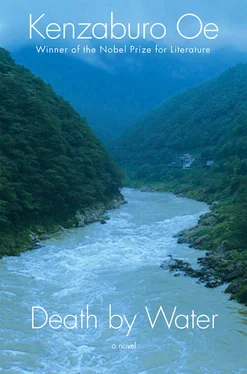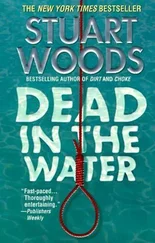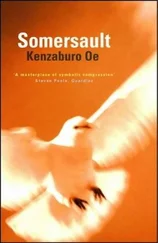Kenzaburo Oe
Death by Water
PART ONE. The Drowning Novel
1
The year I went off to university in Tokyo, something fateful happened when I returned home to Shikoku for one of the last in a series of traditional Buddhist services for my father. (He had died prematurely, nearly a decade earlier.) For the first time in ages our rambling farmhouse was overflowing with assorted friends and relations, and among the guests was an uncle of mine whose eldest daughter had recently been married to a government official, a graduate of Tokyo University’s prestigious law school.
“So,” this uncle said to me, “you managed to get into that university. Great news, but what’s your major?”
When I replied that I was studying literature, he made no attempt to hide his disappointment.
“In that case,” he said glumly, “you probably can’t expect to find a decent job after you leave school, can you?”
Then my mother, who was usually rather reserved in social situations, came out with a totally unexpected suggestion. Her words threw me into a state of confusion, for until then I had aspired to nothing more ambitious than becoming a French literature scholar.
“Well,” she said, “if he can’t find a regular job, then he’ll most likely become a novelist!” This pronouncement was greeted with stunned silence, but the tension was quickly dispelled by my mother’s next remark. “In fact,” she went on, “there’s more than enough raw material for a novel in the red leather trunk alone!” That made everybody laugh.
All the old families in the region (even if they didn’t have an illustrious history or any success in business to boast about) had their own unique legends and traditions, which were passed down from generation to generation. Time and again anecdotes that struck people as funny or strange would resurface as perennially popular in-jokes, though they would have been meaningless to visitors from the outside world. The red leather trunk was a small part of my clan’s proprietary strange and funny lore.
My mother’s startling words—”Then he’ll most likely become a novelist!”—put down deep, spreading roots inside me, and the fact that my close family members had found that notion so amusing simply added to its power.
During the three years that followed I still didn’t have a clear idea of what my chosen path would be, but I did try my hand at writing some short stories. To my surprise, one of those early efforts was published in Tokyo University’s campus newspaper, and as a result of that success I felt ready to embark on a career as a novelist right out of the gate. In a sense, then, my mother’s offhanded quip ended up steering me toward my destiny.
In the tale I’m about to relate, my mother’s “joke” will make an encore appearance in a way that is more tragic than comical, but we’ll get to that part of the story in due time.
2
For the past several years my wife, Chikashi, has been exchanging occasional greetings with my younger sister, Asa, on my behalf. As a rule, my sister would just leave me an occasional message, so it seemed unusual when she called our house in Tokyo one day and asked specifically to speak to me.
“It’s been ten years since Mother died,” she began, “and in accordance with her will — well, it’s really just an assortment of notes she dictated to me, so I don’t know whether it would even hold up in court — but anyhow, I promised to hand over the red leather trunk to you this year. If we wait till the actual anniversary of her death on December fifth I’ll be busy with other obligations, and when summer rolls around I was thinking that instead of heading to Kita-Karuizawa as usual, you might want to come back to Shikoku and pick up the trunk. You haven’t forgotten about it, have you? I mean, it’s not as if you’re too busy to get away; these days you seem to have all but abandoned your fiction and the only thing you’re doing, as far as I can tell, is eking out one column a month for a newspaper.”
“That’s correct,” I said, ignoring the sisterly gibe. “And of course I haven’t forgotten. Mother was worried that if I got hold of the items she kept in the red leather trunk, I might be able to resume work on the novel about Father’s drowning I’d started writing ages ago. That was her reason for instituting a ten-year moratorium — or was the cooling-off period your idea?”
“No, that was Mother, all the way. Her eyesight was failing and it was difficult for her to write, but her mind was still as sharp as ever. I think she figured you probably wouldn’t outlive her by ten years, since the men in our family aren’t exactly known for their longevity. Anyhow,” Asa went on, “when I mentioned I’ll be extra busy at the end of the year, it’s because I’ve gotten involved in a drama project with some young people — you may have heard that I’ve been in touch with Chikashi regarding their use of a number of your early books. Speaking of which, I’ve been letting the theater troupe use the Forest House — with Chikashi’s permission, of course — and their presence has really breathed new life into the place. Don’t worry; they’re very conscientious about always leaving everything in perfect order. But anyhow, as I was saying, if you’ll be coming down here to take a look at the contents of the red leather trunk, why don’t you plan to stick around for a while?”
Ah, the red leather trunk and the drowning novel (that was how I always thought of it). After my telephone conversation with Asa I felt an exhilarating resurgence of my enthusiasm for novel writing. While the sun was still high in the sky I withdrew to my study, which also doubled as a bedroom. I drew the curtains, then stretched out on the narrow bed to contemplate this intriguing new development.
When I was a young writer I had been mocked and criticized by people who said things like “Because he started writing while he was a college student, this novelist lacks the necessary life experience, and he will probably hit a brick wall before too long. Or maybe he’s planning to be like other writers of his generation and try to earn his stripes with a dramatic change in direction, such as becoming a war correspondent or some such.” Nonetheless, I never wavered. I knew that when the time was ripe I would write a definitive novel about my father. In the meantime, I told myself, I’ll be accumulating the necessary skills.
I imagined sometimes that I would begin to write the tale as “I” and would then just go with the flow of the narrative, bobbing along on the currents of memory. But, I fretted secretly, what if the novelist himself ended up being sucked into the whirlpool in a single gulp when he was finished telling his story?
The fact is, even back in the days when I hadn’t yet read a single serious work of fiction all the way through, I used to see a pivotal scene from the drowning novel in my dreams, night after night. The basis for the recurrent dream was something I actually experienced when I was ten years old. Then, at twenty, I happened upon the phrase “death by water”—in other words, drowning — in a poem by T. S. Eliot that I first read in the original English (the French translation was given alongside as well). And although I hadn’t tried putting my experience down on paper, even as a short story, I felt as if the novel already existed, fully formed, in my head.
So why didn’t I go ahead and start to draft the book? Because I realized clearly that I didn’t possess the literary finesse to pull it off. But even while I was floundering around, not at all certain that I would be able to survive as a young novelist, I remained essentially optimistic. Someday, I vowed, I will write the drowning novel.
Читать дальше










